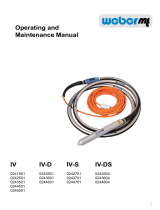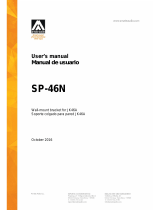
5100008832IVZ.fm 3
1 Foreword ....................................................................................................................5
2 Introduction ...............................................................................................................6
2.1 Means of representation for this operator's manual....................................................... 6
2.2 Wacker Neuson representative...................................................................................... 7
2.3 Described machine types............................................................................................... 7
2.4 Identification of the machine .......................................................................................... 7
3 Safety .........................................................................................................................8
3.1 Principle ......................................................................................................................... 8
3.2 Qualification of the operating personnel....................................................................... 11
3.3 Protective gear............................................................................................................. 12
3.4 Transport...................................................................................................................... 12
3.5 Operating safety........................................................................................................... 13
3.6 Safety during the operation of hand machines............................................................. 14
3.7 Safety during the operation of electric appliances ....................................................... 15
3.8 Maintenance................................................................................................................. 16
4 General Power Tool Safety Warnings ...................................................................17
5 Safety and information labels ................................................................................21
6 Scope of delivery ....................................................................................................22
7 Structure and function ...........................................................................................23
7.1 Application.................................................................................................................... 23
7.2 Functionality................................................................................................................. 23
8 Components and operator's controls ...................................................................24
9 Transport .................................................................................................................25
10 Use and operation ...................................................................................................26
10.1 Prior to starting the machine........................................................................................ 26
10.2 Starting up.................................................................................................................... 26
10.3 Decommissioning......................................................................................................... 29
10.4 Cleaning....................................................................................................................... 29
11 Maintenance ............................................................................................................30
11.1 Maintenance personnel qualifications.......................................................................... 30
11.2 Maintenance schedule................................................................................................. 31
11.3 Maintenance work........................................................................................................ 31
12 Disposal ...................................................................................................................33
12.1 Disposal of waste electrical and electronic equipment................................................. 33
Inhalt






















